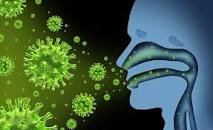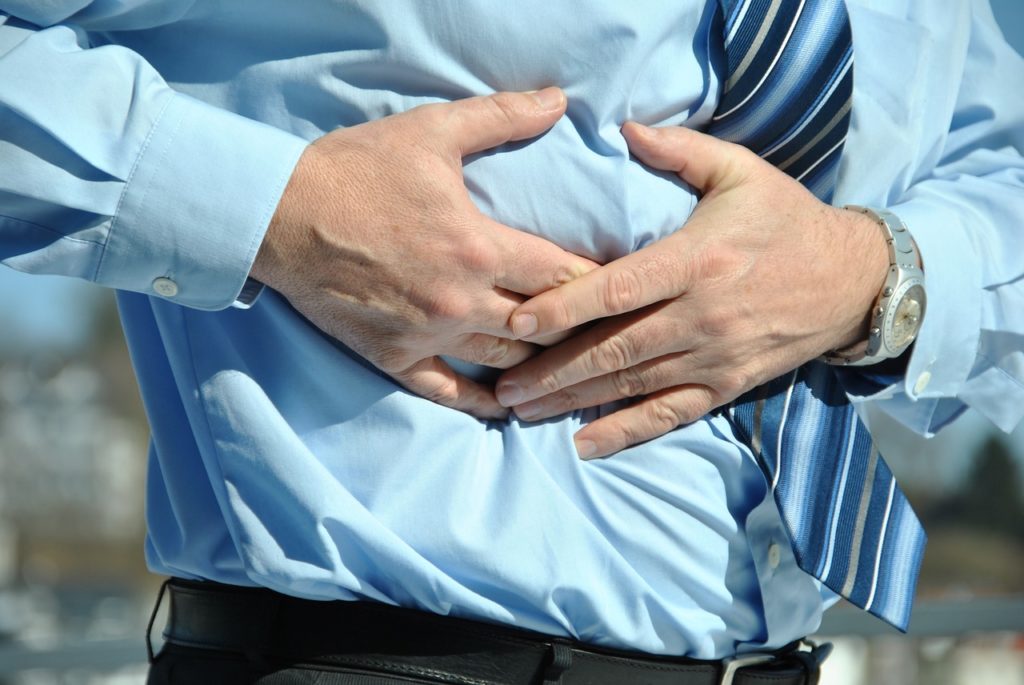There are several causes of disease in humans other than infectious organisms. Many non-infectious diseases in humans signal other factors other than infectious agents.
So it doesn’t rely entirely on your environment to become sick.
First, you can never live in a sterile environment. You may talk of pure air, but it’s impossible to obtain it honestly. Consequently, the air you breathe has bacteria and viruses in it. In addition, our environment consists of various disease-causing macro and microorganisms.
What’s my point? Other causes of disease in the body don’t depend on your environment. Moreover, they have more to do with your lifestyle.
Get this. I don’t refute the part of pathogens in causing disease and sickness. But, there is more that you ought to know about conditions. Although different diseases have different causes, there are common underlying factors.
Here are some of the 15 factors involved in disease processes that make you sick other than viruses and bacteria:-
1. Malnutrition

It simply means to lack proper nutrients in your body. Maybe you don’t have enough to eat or lack a balanced diet. Usually, it can be because of missing vital food components in the diet. Malnutrition makes you susceptible to infectious diseases.
What are the 4 types of malnutrition?
Acute /wasting malnutrition
Acute malnutrition results from inadequate protein intake. xx
Low height for age
This is known as stunting malnutrition. It indicates chronic undernutrition. It’s associated with death and stunting in kids. This condition is prevalent in poverty-stricken countries. (1)
Underweight malnutrition
This malnutrition consists of a body mass index (BMI) lower than 18.5. Research relates it to an intentional weight loss of 5-10% within less than 6 months.
Deficiencies malnutrition
This kind of malnutrition is due to excess intake of a particular nutrient. Failure to balance calories and nutrient intake also results in malnutrition.
What are the symptoms of malnutrition?
- Reduced or low ability to concentrate.
- Tiredness and irritability
- Frequently feeling cold
- Some feelings of depression
- More extended time to heal from wounds
- Prolonged recovery period when sick.
- Loss of body muscle mass
- Loss of appetite
- Susceptibility to infectious disease
2. Autoimmune causes of disease
These diseases result when the immune system reacts abnormally and attacks itself and healthy cells in the body.(2)
The specific causes of autoimmune diseases are unknown, but studies suggest that infectious agents may cause it in the body or drug reactions.(3)
A 2020 medically reviewed study found that autoimmune diseases result from pathogenic inflammatory responses due to inadequate immune activation. (4)
3. Food-Contamination
According to the report of the world health organization, cholera infection results from ingestion of contaminated food or water. The infectious agent that causes cholera is Vibrio cholera. (5)
Statistics reveal that an estimated 1.3- 4 million people contract cholera annually. In addition to that, 21,000 to 143,000 people succumb to the disease every year.(6)
The most severe attacks are in developing countries and slums. You should ensure a clean environment with appropriate sanitary facilities that are clean because certain human diseases that affect you will spring up from the dirt in your environment.
4. Stress and anxiety

Stress is emotional or mental tension or pressure due to adverse circumstances. In contrast, anxiety is the emotion that results from stressful feelings.
Experts say that a higher concentration of endorphins in the system cause stress. Stress always paves the way for other sicknesses.
It weakens the immune system, thus making the body susceptible to diseases. These mental health problems are diseases and may lead to other diseases.
Practical ways to manage stress to curb causes of disease
- Organize yourself and understand your limits: Proper organization will help you from exerting a lot of pressure on yourself. Bite what you can chew. Don’t try to do the work in two days in one.
- Have daily sessions of 30 minutes walk: Let it be slowly and gradually advance to a brisk walking pace. It will help reduce the concentration of endorphins that cause stress.
- Check on your nutrition: Eat well of good food and remove all kinds of stimulants from your diet.
- Connect with friends and support team: When the pressure is too hard on you, get some friends and share with them. Then, contact a counselor who will help you with vital insights.
- Have enough regular sleep: It’s sensible that you get at least 7 hours of sleep. Sleeping has a magic restoration to our system that we can’t fathom. It would be best to put off your phone 2 hours before bedtime.
- Get a good pet and bond together: Having a good pet at home will help you cheer up. Get a well-trained, disciplined dog, and you will smile amidst the storm.
- Have meditation and prayer sessions: If you have an anchor where you can breathe out your problems, you can’t get stressed. Knowing that God cares for you will keep a smile on your face.
5. Dehydration
Dry out is the condition of losing more body fluid than the intake. Experts say you must drink up to 30% of your weight daily. However, it would be best if you consider your activities and the weather condition of your locality.
Effects of prolonged dehydration on your system:
- Heart stroke and heat cramps
- Low blood volume
- Kidney failure
- Weakened immune system.
- Coma
6. Insufficient free air / Suffocation
Asphyxia is a condition in which the body doesn’t receive sufficient oxygen. Unchecked can lead to brain injury, loss of consciousness, and even death.
You require sufficient oxygen supply by intake of fresh air. When the body can’t receive adequate oxygen, there will be a feeling of headache and even shortness of breath.
Insufficient oxygen levels in the blood system can weaken the immune system. The aftermath of this is a disease.
Research proves that white blood cells activity increases with increased oxygen levels.
Fresh air also helps in optimum digestive and cardiovascular system operations.
Enough oxygen in the body helps in the secretion of serotonin, which helps relieve stress. It’s also a contributor to normal heartbeat rate and blood pressure.
7. Lack of self-control
Temperance is the ability to dispense with everything hurtful and judicious use of that which is good.
Every substance which will lead to adverse effects you must discard. Many human diseases are due to intemperance. The prevalent STIs today is a result of a lack of self-discipline.
Intake of alcohol and smoking must make you sick if you don’t change. Having a balanced mind will help you think about every action’s consequences.
8. Wrong use of drugs

It will be shocking to tell you that drugs don’t heal. Check out this scenario, when you are thirsty, what do you need? Yes, it’s drinking water.
Where did we get this notion that we need aspirin when we have headaches? You have been conditioned to believe the white lie. Honestly, drugs are good in dealing with the effects of any disease
But they are substandard when it comes to curing and dealing with the cause of the disease. Drugs change the form and position of the disease. It’s like a time bomb that will eventually explode.
9. Compromised immune system
The immune system comprises cells that help the body fight against disease-causing pathogens.
It’s the natural defense mechanism in an individual. You can maintain these healthy soldiers or compromise them. When your immunity is strong, you will be prone to sickness.
When under the attack of an infectious agent, your immunity will determine whether the disease develops or not.
10. In-activity
Inactivity is failure to engage your body to work. You might not sleep all the time, but you only sit, drive and ride. Every faculty of the body needs exercise.
It would be best if you had regular exercise daily. Exercise will help you to burn excess calories and maintain a good weight. In addition, your immunity improves with activity.
You may get sick because your blood circulation is not vigorous due to inactivity.
11. Wrong habits of eating
Are you aware that most of our problems have direct links to food? So, unfortunately, you may eat your way to the grave. But, the good news is you can do the same to health.
There are high seasoned foods with lots of calories that will result in diseases.
Most chronic diseases are called lifestyle-related. There are a lot of poisons that people take at the expense of their health. For example, sweet poisons in sugar, ghee, lollipops, and sweets are hazardous to your health.
Meat eating is currently connected to the high cases of cancer today. Colas and carbonated drinks lead to diabetes and various chronic problems.
Every nutrient that your body needs you can get in plants. If you eat mainly animal products, you lower your longevity.
Eating late at night is another bad habit that will ruin your health. You need to eat at least 3 hours before bed. Preferably take a light evening meal.
Your body only needs little energy for basal metabolic rate (BMR). The rest of the energy is converted to fats, affecting your body’s normal functioning.
12. Lack of rest
Everyone talks of a 24/7 economy. Naturally, men can’t work all through. Failure to rest and have sufficient sleep will lower your immunity. There is regeneration that takes place in the body when you are asleep.
Trouble in mind due to anxiety is the dominant cause of diseases today. Many who don’t believe have no rest in the soul and find the world’s trials overwhelming. Hence, stress and depression grip them with an iron fist.
13. Lack of proper sleep
Most human diseases emerge due to a weak immune system. Insomnia and other sleep disorders affect body immunity and increase the chances of developing chronic diseases.
A medically reviewed study found that poor sleep increases your chances of developing hypertension, diabetes, and other chronic diseases.(7)
Moreover, another2021 clinical trial found that lack of sleep increases the amount of cortisol in the system and may cause insulin resistance, obesity, etc.(8)
Late to bed and late to rise is dangerous for your health. Anytime past 9:30 pm doesn’t render you quality sleep. To avoid any chronic disease and compromised immune system, ensure you have a quality night’s sleep.
15. Poor hygiene
Failure to take baths will make you develop skin diseases and rashes. Ringworms are parasites that are frequently associated with untidiness. Brush your teeth. A foul mouth attracts bacteria, which can lead to heart infections.
The dirty environment around the home is a breeding area of disease-causing pathogens. For example, a cholera outbreak has a direct connection with poor sanitation.
Damp rooms will cause Suffocation and difficulty in breathing. According to a 2002 report, poor housing conditions are responsible for several human diseases. The reason is that there are high chances of coming in direct contact with pathogens.
16. Diet

A 2021 study found that ultra-processed foods are the leading contributors to cardiovascular diseases that are on the rise.
He who eats whole grain is a “whole man.” Buggers and potato chips contain fats and calories that are causing you a lot of problems.
The high-season foods irritate the stomach and are not amounting to nutritional value, as alleged by advertisers. Refined sugar is worse than red meat, and several studies suggest that it may induce disease in humans.
The colas and the so-called soft drinks have ZERO nutritional value. Instead, they have artificial sweeteners and chemically made food colors to attract a perverted appetite.
White products and refined foods are the reasons for the increase in hemorrhoids today. For example, white rice and white floors are void of germ and dietary fiber, and the preservatives for packaging are harmful to health in the long run.
It’s impossible to escape a chronic disease when you take added sugar.
17. Inefficient knowledge of the disease and body mechanism
I’ve said this before, and I will repeat it. When you feel hungry, it’s evident you need food, right? But where did you realize that you need aspirin when you feel a headache?
Without understanding how your body works, you will always be ignorant of the true meaning of disease.
Unfortunately, with a distorted understanding of the disease, many don’t reason from cause to effect but treat the effects and are satisfied.
18. Genetic disorders
Genetic disorders are other factors that cause disease in humans, although in rare cases.
People born in the lineage of type-2 diabetes are likely to be diagnosed with diabetes.
Sickle-cell anemia is another genetic disease condition in humans. Some cancers, like breast cancer, are also associated with an individual’s genes and genetic mutations.
Some human diseases result from gene mutations. A good example is breast cancer.
19. Infectious diseases

A 2017 study found that 30 different infectious diseases have emerged over the past 30 years. In fact, handling these infections is challenging because there are no specified medications to treat them.
The national health institute further affirms that the world has faced waves of infectious disease outbreaks unlike any other era in the twenty-first century. All these diseases have a specific infectious agent with different characteristics.
Infectious diseases are human diseases caused by invading pathogens in the body tissues. These are infectious diseases that spread from person to person through bodily fluids. (9)
Several infectious diseases spread through direct contact with infectious agents from a sick person.
What are the top infectious diseases?
The most common infectious diseases include Chlamydia trachomatis, Gonorrhea, Syphilis, Salmonella infection, Shigella infection, Hepatitis C, Influenza (flu), Staph infections, E. coli, Genital herpes, Norovirus infection, Pneumonia, HIV/AIDS, and Common cold.
What are the four types of infectious diseases?
Bacterial infectious diseases
Prokaryotes are microorganisms that cause bacterial infections. They are primarily single-celled. Not all bacteria are harmful, but several are. The most disease-causing bacteria include Clostridium tetani Yersinia pestis, Neisseria gonorrhoeae, Treponema pallidum. (10, 11)
Some bacterial diseases that affect humans include Lyme disease, tuberculosis, etc.
Viral infectious diseases
Viral infectious disease is caused by tiny microscopic agents that replicate in the host’s cells. They have an RNA or DNA genome enclosed in an envelope. The most common viruses are human immunodeficiency, Herpes simplex, and influenza. (12,13)
Infectious diseases due to viral attach are hazardous because viruses often mutate, making it harder to develop proper treatments. (14)
Viral infections always take advantage of host factors like weakened immune systems.
Fungal infectious diseases
Fungal infections result from fungus attacks, and you can’t overcome these infectious diseases by body immunity alone. The most common fungal infections include Athlete’s foot, Ringworm, Jock itch, urinary tract infections, genital candidiasis, etc. (15)
Parasitic infectious diseases
Parasites are pathogens that injure and obtain sustenance from their host. Prevalent parasitic infectious diseases include Trichomoniasis, amebiasis, malaria, and sleeping sickness.(16,17)
Factors can increase an individual’s susceptibility to pathogens?
Here is a summary of five factors that may determine the ease of an individual contracting a disease.
Age
A 2020 study found that the susceptibility to disease in persons younger than 20 is half the rate of adults above their 20s. Another clinical trial proved that elderly individuals were more susceptible to coronavirus than the young.(18)
Nutritional status
A 2020 study found that susceptibility to covid-19 was due to increased intake of refined sugar, processed foods, and poor nutrition. Another clinical trial suggests that nutritional status plays a crucial role in disease susceptibility. (19)
However, good nutrition will give you healthy organs, active bone marrow, and a robust immune system.
Genetics
Among all the factors causing disease, genetic related factors are most challenging.
A 2010 study suggests that mutation of genetic complement is responsible for some types of human diseases.
Genetic disorders cause several diseases. Sickle cell, breast cancer, and diabetes are some of the genetic-related diseases that may attack individuals.
Immune competency
Having a weak immune system is the primary cause of infectious diseases. There is a lot of pathogenesis in the body than mere exposure to an infectious agent.
If you have strong immunity, it’s easier to fight several infectious diseases than viruses. A robust immune system efficiently fights infections like the common cold and influenza.
Previous chronic illness
Earlier medical conditions may lead to other disease conditions later in life. A study found that many diseases are interrelated. For example, hypertension may lead to heart disease later.
A disease like HIV weakens the cd4 cells of the white blood cells leading to susceptibility to other disease conditions.
Pets
Domestic animals are neglected factors causing disease in humans. Zoonotic diseases may occur if an infected animal bites you. Having pets at home may make you susceptible to disease.
A 2022 publication affirms that the increasing state of human-animal interactions increases the chances of zoonotic diseases.
Another 2015 research poses that human contracts illnesses from dogs such as ringworms, diarrheal diseases, etc.
Wrap up
The factors causing disease above show that you can control several human diseases by adopting healthy lifestyle practices.
You must take precautions for communicable diseases to ensure you are always on the safer side. Follow Healthline media advice and Centers for Disease Control and Prevention (CDC) and World Health Organization (WHO) guidelines to keep off.


This is a
very important information,
Am blessed by it
Welcome brotherman
Woooow this is amazing.. it’s a good content for the safety of our health. Thumbs up
I’m humbled
Thanks for the crucial information shared
Welcome brother man half is not yet told.
Thanks for this wonderful information even though I’m a victim of some, it’s high time I need tovchange my lifestyle. Be blessed.
Glory to God He will give us remedy too.
It’s a wonderful information. Very important when taken into consideration.
Thank you very much for this information. We live by grace alone. Let’s do our best in healthy reform and God will do the rest.
The message here is so just great
This was just awesome, thank you very much.
This was just awesome, thank you very much.
A very contented article with Vital knowledge for both me and you. Gracias
Thanks for the msg..
Its amazing
Thanks for th message
Its really vital and amazing
Pingback: 19 ACID REFLUX HOME REMEDIES FOR – 2021 | GILEAD THERAPY
Pingback: 12 Home remedies for gout pain | GILEAD THERAPY
Pingback: 12 Home Remedies for Insomnia | GILEAD THERAPY